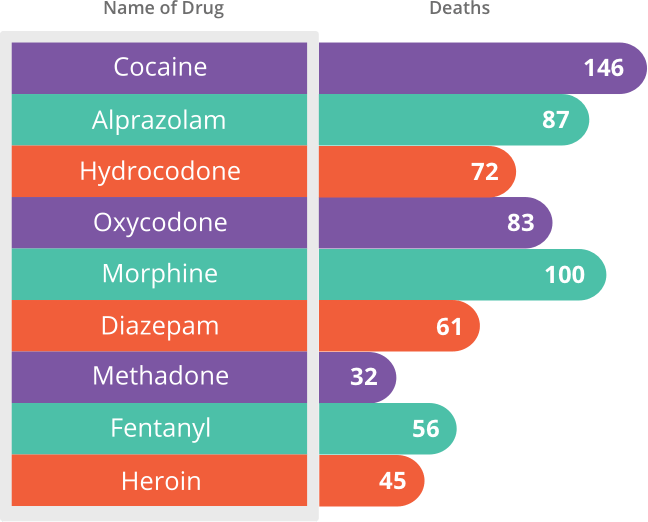Even when the urges diminish and the customer has effectively resisted the temptation to relapse, extra cravings frequently follow within days or hours. For customers whose desire to utilize compounds fades gradually, the threat of regression remains high as long as other problems stay prominent but the client has few or poorly developed coping skills aside from escape through compound usage.

This area will lay out means of building these interventions into strategies for preventing client regression. Focus is put not only on the effect of relapse on the client's healing https://claytonfard828.shutterfly.com/50 procedure, however also on the therapist and the interpersonal therapy process. By acknowledging in advance that regression can occur, a therapist provides the customer with a practical photo of the healing process.
The therapist provides feasible hope of progress and ultimate success through the therapy cooperation, but likewise informs the client that some disappointments, obstacles, and potentially episodes of relapse are inescapable along the way. The therapist lets the client know that preparing for these possibilities will allow the client to be better prepared to deal with them if they occur.
The therapist guarantees the customer that if regression occurs to happen, it can be utilized in therapy as an opportunity to read more about personal strengths, limitations, and needs. To optimize customer participation, the therapist requires to take steps beyond merely stating this acknowledgment to the client. The therapist needs to even more ask about the client's response to the viewpoint on relapse just explained. how to talk to employer discretely about needing treatment for addiction.

5 Simple Techniques For What Is Treatment For Porn Addiction
Keep in mind the significance of the therapist likewise accepting the likelihood of customer relapse. The assisting occupations are rife with unjust sentiment that therapy for disordered compound use is largely unsuccessful since such customers can not or do not want to alter. Some other specialists who reject this pessimistic outlook and think that regression does not equal failure of treatment still may encounter their own sensations of disillusionment when a client yields to temptations to fall back Click here to find out more into old behaviors.
Guidance can assist newer or struggling therapists in overcoming their own resistances and in working efficiently with the difficult dynamic of customer relapse. By motivating the client to report regression incidents or other considerations of acting counter to treatment objectives, the stage can be set for using treatment sessions to promote finding out from obstacles in addition to from successes.
When the possibility of relapse is confessed and an agreement to examine any relapse episodes remains in place, the therapist remains attentive for emerging requirements to deal with unfavorable ideas and feelings about relapse as they arise. The customer's perspective. From the client's viewpoint, anticipatory sensations vary from extreme fears to conceited overconfidence about abilities to resist relapse (what is drug addiction treatment).
Regarding a regression that has actually currently happened, clients might feel anything from intense regret and shame to relief or resignation related to resuming substance use. While some customers honestly acknowledge a regression, other customers who have agreed beforehand to report a relapse still hesitate to confide about an event once it has really taken place.
Not known Facts About How Many People Not Recieve Addiction Treatment
Bewaring not to assume a regression has in truth happened, the therapist can see aloud the distinction in the customer's discussion and reveal interest, welcoming the customer to elaborate on its meaning. The therapist who regularly checks in with the client to ask about any substance usage given that the last treatment session provides a context in which a client who hesitates to bring up the subject can be triggered to share details.
As the therapist checks out client material that appears vague, evasive, abnormally emotion-laden or puzzling, it is very important to remember that pushing customers to admit relapses they have not yet acknowledged seldom assists. Using open concerns that avoid presumptive phrasing is most likely to generate pertinent material from the client. When a customer reports a regression, either by self initiation or in action to the therapist's exploration, the therapist first uses support by restating genuine approval of the client in addition to curiosity about what can be gained from the incident.
Empathic listening will help the therapist preserve rapport at such hard times, and likewise help evaluate how the customer is in fact responding to the regression. Relapse avoidance preparation continues from this point to include analysis of the regression experience and to apply findings toward treatment goals. here Analysis of the lessons found out from a regression is most helpful when the therapist can get a precise reading of the customer's emotional state following regression.
A shame-ridden client can be advised that while his sensations are understandable uncomfortable, it is very important not to lose sight of progress he has actually currently made, as well as the remaining potential for additional progress. The client involved anger that she bothered to try treatment when this relapse shows she was just setting herself up for yet another failure can be prodded to recall reasons for looking for and going to therapy prior to this relapse (how many addiction treatment centers are there in the us).
Why Isnt Addiction Treatment Funded Fundamentals Explained
In each case, the therapist will most likely recommend an evaluation of the treatment strategy, particularly the arrangements for regression avoidance - why is group therapy the most effective treatment for addiction. The therapist further determines with the customer whether some modification of the plan is needed based on incoming details. The therapist's viewpoint. In addition to assisting the customer address feelings about a regression and its influence on treatment inspirations, therapists also experience their own strong affect at points of client regression.